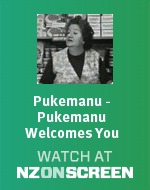Arthur Allan Thomas
Arthur Allan Thomas, a South Auckland farmer, was found guilty of the murder of his neighbours Jeanette and Harvey Crewe the previous year. Following an appeal he was convicted for a second time in 1973. A campaign led in part by Pat Booth of the Auckland Star attempted to overturn Thomas’s conviction. Forensic scientist Dr Jim Sprott testified that the cartridge case crucial to the case had been planted at the scene by police. Thomas was eventually pardoned in December 1979. No one else has been arrested for the murders. A number of theories have been put forward as to what really happened. These range from murder–suicide to Jeanette Crewe’s father Len Demler being the killer. Another theory suggests that the real killer was a policeman who planted the evidence that convicted Thomas. The best-selling book Beyond reasonable doubt (1978) by British author David Yallop was followed by a docudrama feature film with the same title (1980).
Race Relations Act
The Race Relations Act prohibited discrimination on the grounds of race, nationality or ethnic origin. It established the office of Race Relations Conciliator and established procedures for dealing with complaints of racial discrimination. Sir Guy Powles, New Zealand’s first Ombudsman, was appointed as the first Race Relations Conciliator. In 1977 discrimination on the grounds of marital status, sex, or religious and ethical belief were added to the office’s brief. In 2001 the Race Relations Office merged with the Human Rights Commission.
Pukemanu
Pukemanu, with its ‘rural, bi-cultural, boozy and blokey’ portrayal of life in a North Island timber town, represented a significant step in locally made television. Two six-episode seasons represented the first occasion on which the New Zealand Broadcasting Corporation (NZBC) had invested in continuing drama. Some viewers who had been fed a regular diet of American and British accents experienced ‘cultural cringe’ on hearing an authentic Kiwi twang, but Pukemanu was generally praised for its ‘Swannie-clad authenticity’.
Anti-Vietnam War protests in Queen Street
Protesters disrupted the civic reception held to mark the return of 161 Battery RNZA and 4 Troop NZSAS from their deployment in South Vietnam in May. Things were relatively uneventful until the parade reached the Auckland Town Hall. At this point firecrackers and red paint-bombs symbolising the bloodshed in Vietnam were thrown on the road. Several paint-covered protesters then broke free from the crowd and sat on the road, disrupting the parade briefly before they were removed by police. In August Prime Minister Holyoake announced that New Zealand’s combat forces would be withdrawn by ‘about the end of this year’.
Other 1971 events
- The Manapōuri power station, New Zealand’s largest hydroelectric generator, was completed and the Tiwai Point aluminium smelter began production.
- The South Pacific Forum met for the first time, in Wellington. The Forum sought to enhance cooperation between the independent countries of the Pacific Ocean.
- The Luxembourg agreement secured a special arrangement for New Zealand’s butter, cheese and lamb exports upon Britain’s acceptance into the European Economic Community in 1973.
- Opera singer, actor and master carver Inia Te Wiata died. Rising opera star Kiri Te Kanawa made her Covent Garden debut
- Kentucky Fried Chicken opened its first New Zealand store in Auckland – the American fast food invasion had begun.
- The Weekly News was published for the last time.
- The last scheduled steam-hauled service on New Zealand Railways, the Christchurch–Dunedin overnight express, brought to an end 108 years of regular steam rail operations in this country.
- The Melbourne Cup was the first sporting event to be broadcast live via satellite in this country following the opening of the Warkworth satellite station earlier in the year.
- Craig Scott made it back-to-back Loxene Golden Disc Awards with ‘Smiley’. The other major award went to Chapta for their hit, ‘Say a prayer’.
Can you remember 1971? Add your memories and comments in the form below.








Community contributions